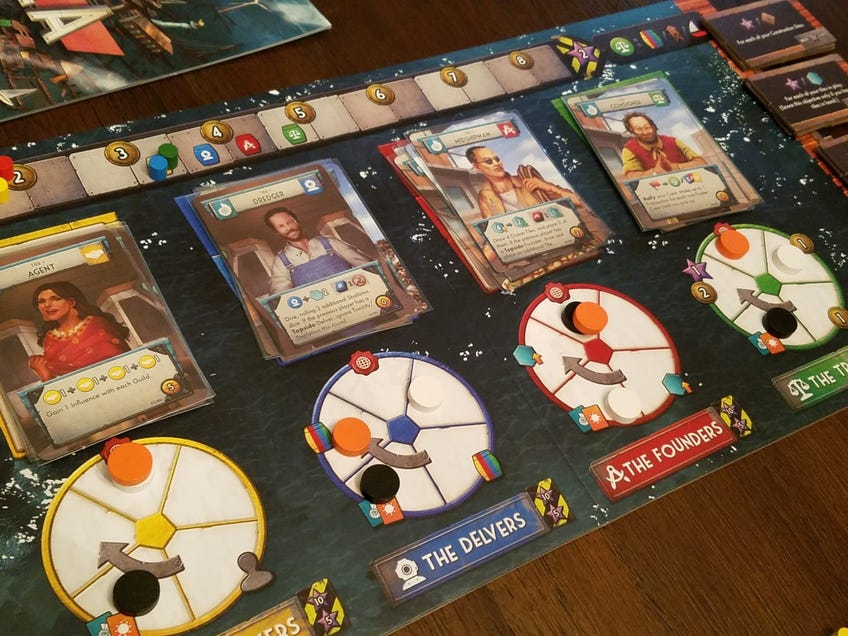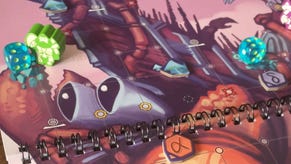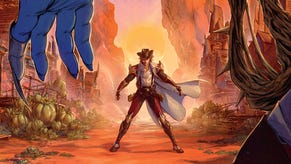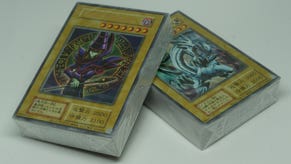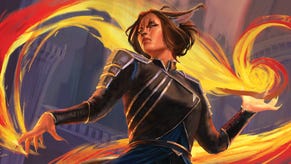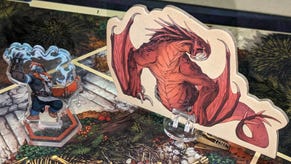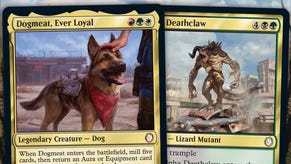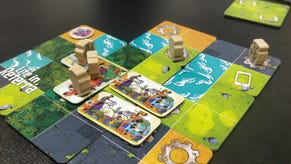Choosing when to settle down is everything in Flotilla, one of 2019’s most unique board games
Catch you on the flip side.
Flotilla just has it. I'm talking about that mythical spark that's difficult to describe but easy to feel. It's what separates something remarkable from something mundane. Flotilla is remarkable.
When someone pitches you the idea of Waterworld as a board game you expect wave runners spitting out dark clouds, high speed chases upon rushing tides and perhaps a man-fish hybrid in the mix. Flotilla doesn't have any of that. It does have the post-apocalyptic bit where the world has found a watery grave and humanity is on the brink - but instead of violence and drama we have tracks and rondels.
This is a peaceful affair of exploration and scavenging for lost relics. You're tasked with aiding and perhaps even building the massive flotilla city harbouring the remnants of humanity. Beyond the sprawling tiles of ocean and wreckage is a sophisticated economic board game with enough moving parts to power the Exxon Valdez. All of these parts contribute in unison to this economic game concerned with players buying and selling from the same market.
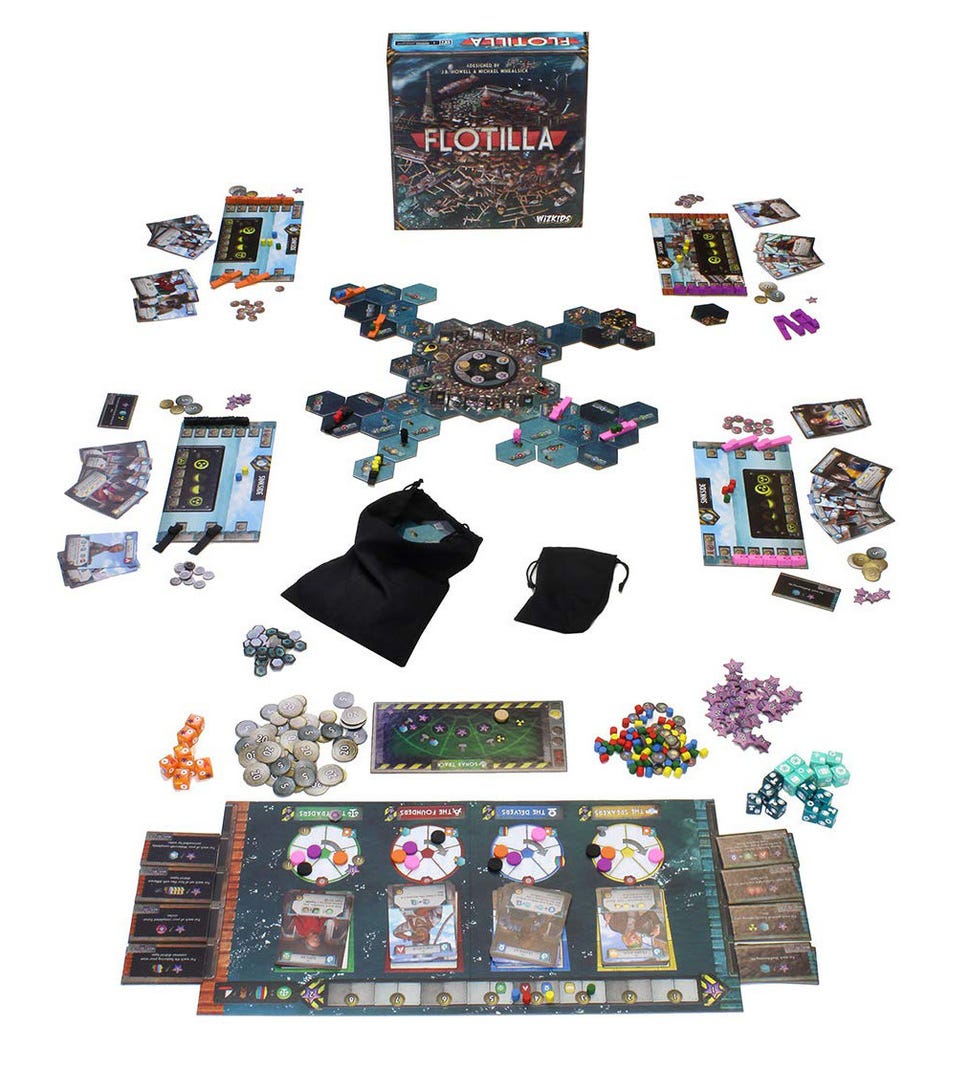
Your central engagement is through an action-card system where you play one of several options from your hand. You never draw from a deck or reshuffle, but you must manage your hand and scoop your cards back up at the appropriate time to exact maximum efficiency. This is lifted from the modern classic Concordia and leveraged to great effect.
Actions performed include exploring sea spaces, diving for salvage and subsequently selling it to market. You can tweak your hand by progressing among several guilds and earning new cards. You can discover scattered survivors out across the endless blue which results in pushing another track. An additional meter details payouts from rolling sonar symbols on the dive dice.
It's almost too much.
When you're trying to establish your footing everything is buzzing and clouded. Then suddenly it all comes together in beautiful crescendo. This is the flip mechanism.
When you play the captain card to retrieve your actions you must make a key decision. Do you continue as a ‘Sinksider’, plumbing the depths of the abyss, or do you hang up your fins, settle down and become a ‘Skysider’, toiling upon the flotilla city to expand its reach?
Both utilise the same components, merely in different ways. Instead of rolling dice to dive beneath the surface you're now rolling to assemble the salvage that's been discovered. Instead of exploring the ocean you're building new sections of the watercraft city.
All of your existing action cards correspond to your new lifestyle as you physically flip them to the reverse side. In the early going you’re playing the Pioneer to draw tiles from the bag and expand the sea zone around your starting position. Once you go Skyside this Pioneer flips over to become a Surveyor, allowing you to now build ocean tiles connected to the flotilla and expand its reach.
This change is significant and it feels thrilling.
That's an enormous achievement of the design as this is a key moment over the course of play. There's a well-defined arc; when you choose to head Skyside has direct impact on tempo for the entirety of the table. This is owed to the interconnected mechanisms that play off both sides in subtle and interesting ways.
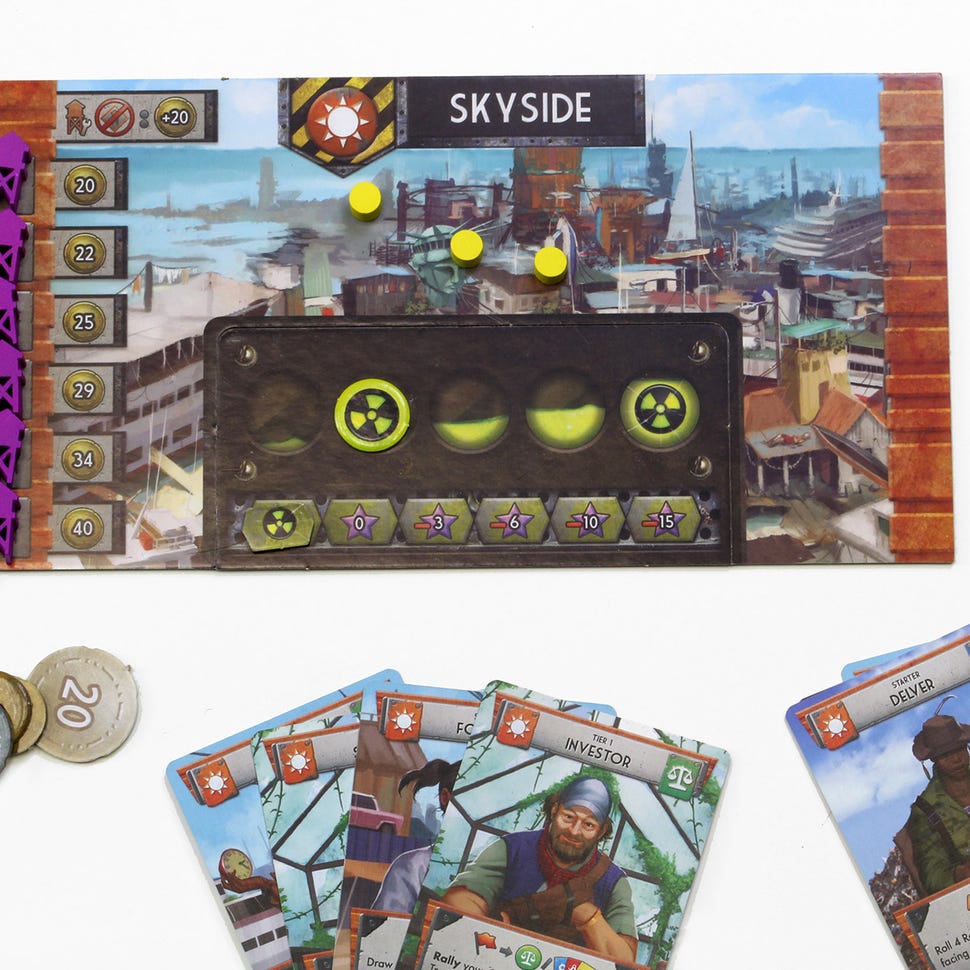
The economy is the most overt. When Sinksiders sell to the market they create more supply, immediately lowering the cost of goods. Skysiders, however, create upward pressure, increasing the cost of each type of good as they're purchased. This creates a symbiotic relationship with a ripple effect that's difficult to command. Early in the game goods will become depressed as everyone begins a Sinksider, but later as more and more players flip Skyside the reverse happens.
A plethora of additional sub-systems further works this relationship. Sinksiders discover artefacts by connecting symbols on explored tiles. These artefacts can later be utilised by Skysiders when excavating. The sonar track offers major victory point rewards for Skysiders who develop the flotilla, which corresponds to increased benefits from rolling sonar symbols when diving.
This circular expression of design is exceptional as it births a contained strategic ecosystem. There's this wonderful encapsulated marriage that you're influencing and each move touches each other player at the table, even if it's often imperceptible. Without this interplay the experience would feel cold and isolated as players never collide or step on each other's toes in the physical space of play.
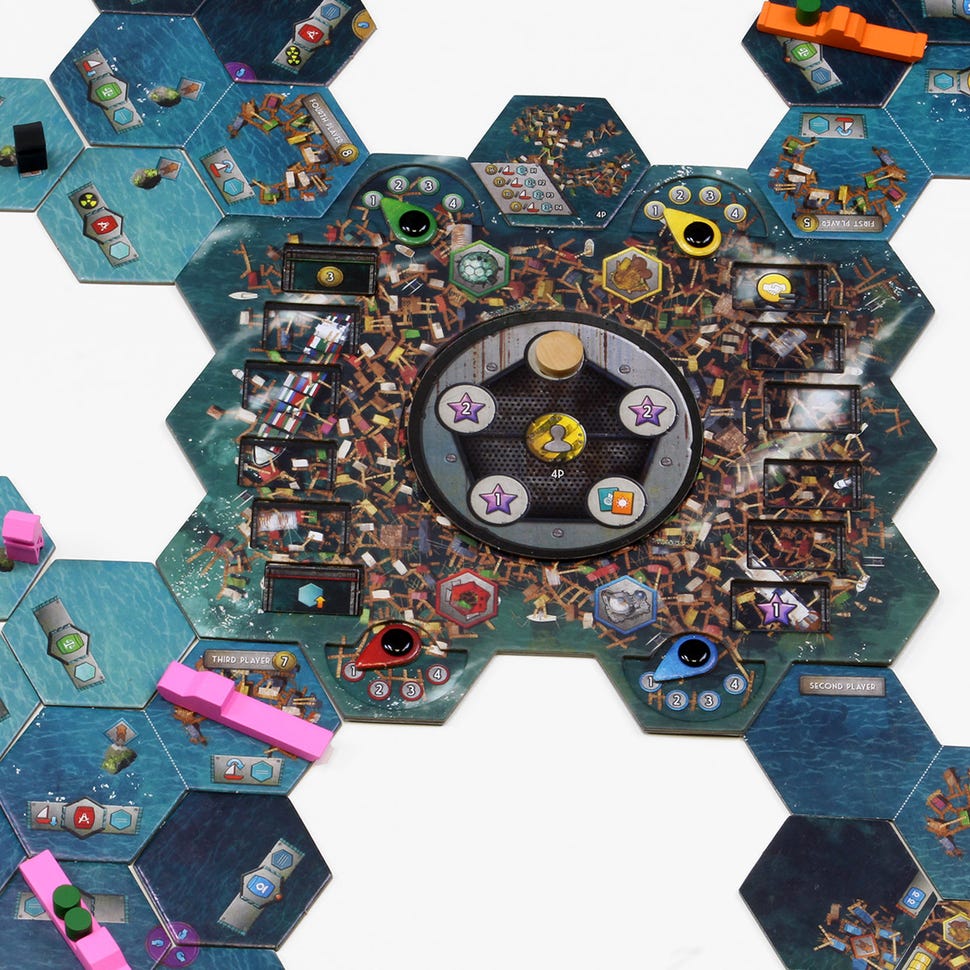
The craftsmanship here is stupendous. Play scales well, with each player count from three to five having its own feel. The balance is tight yet loose, with openings arising and waiting to be exploited. In one play you may find an opportunity to be the only one constructing the flotilla as a Skysider, while in another you may stay Sinkside the entire length. Identifying those market inefficiencies and exploiting them is the decision space.
Despite this brilliance Flotilla can be a hard sell. It embraces chaos to a surprising degree, relying on random dice rolls and tile draws. Pulling a few coins while your neighbour grabs a free skiff doesn't feel warm or exciting.
Mixing a high degree of randomness with such a heavy and protracted framework is a bold move that undercuts some of the most primed audience. It feels as though a thematic gamer took a wild shot at slamming together established systems from complex economic designs with those more luck and story-driven, resulting in something delightful and weird.
Unsurprisingly there is a distinct group of individuals this will satisfy. Those of you able to revel in the mix of chaos and precision will find a uniquely compelling experience that is unlike anything you've played before.
